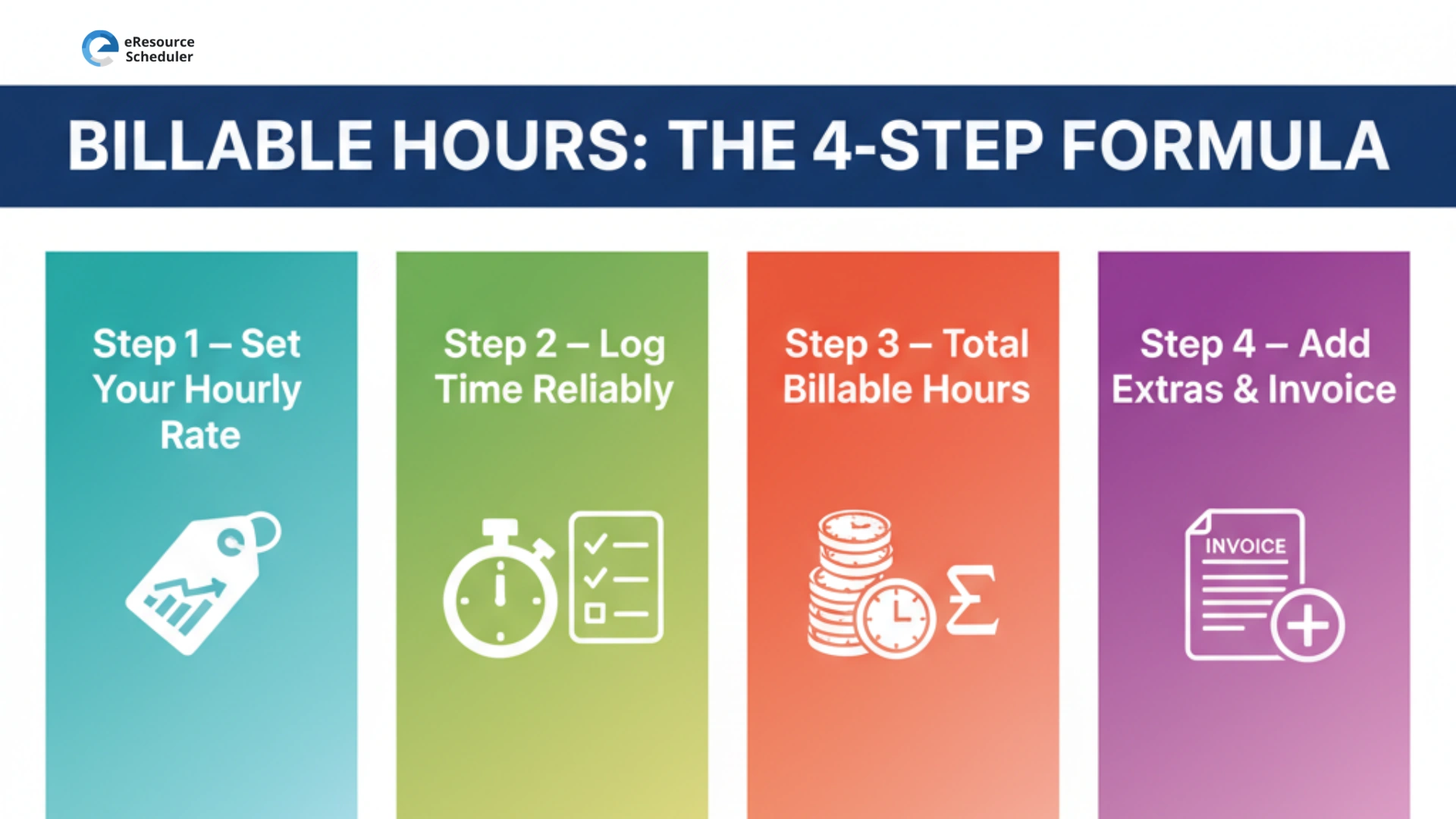
Consultants are the navigators businesses call in at critical crossroads to enter new markets, solve complex problems, or drive innovation. Acting as subject matter experts, they deliver sharp, time-bound impact. But with this model comes a recurring operational challenge of tracking billable hours accurately.
This is where modern timesheet software steps in. It helps consulting teams record, analyze, and invoice time spent on client projects with precision, turning hours into measurable value. Billable hours form the backbone of profitability in consulting, quantifying the tangible outcomes delivered for every dollar spent.
And while consultant rates may be higher than in-house staff, organizations continue to rely on them for one key reason: specialized expertise that drives business objectives beyond internal capabilities. Let’s unpack what billable hours mean, why they matter, and how firms can use better tools and strategies to make every minute count.
Billable hours represent the total time consultants spend on client-facing tasks that can be charged at a pre-set hourly rate. They are a measure of direct, revenue-generating work, a standard model for consulting, accounting, law, and digital agencies.
Accurate tracking helps firms understand how much effort goes into deliverables that directly contribute to income. For instance, an auditor reviewing financial statements logs each step of analysis, communication, and documentation as billable hours, later invoiced to the client.
In contrast, non-billable hours include internal meetings, admin work, training, or marketing. These activities support business operations but aren’t directly invoiced to clients.
Let’s say Tara, a software consultant, logs 100 billable hours in a month at $20/hour.
Billable Value = Billable Hours × Hourly Rate
= 100 × $20 = $2,000
Her total billable value for that month? $2,000. That’s the amount she rightfully invoices for her contribution, clear, traceable, and measurable.
In consulting, understanding this difference isn’t just operational but strategic. It defines how firms grow, price, and sustain profitability.
These are hours directly spent delivering client value, like project work, client discussions, research, or analysis tied to specific deliverables. They are invoiced and represent a firm’s revenue backbone. High billable utilization boosts financial health and project throughput.
Formula:
Billable Hours = Total Work Hours − Non-Billable Hours
Non-billable time supports long-term growth like training, recruitment, planning, or internal process optimization. While not charged to clients, these hours enhance employee capability and business scalability.
Tracking both types ensures managers know where time and effort are going and where value is being created or lost.

A straightforward process can make billable hour tracking painless and precise.
Base it on expertise, market trends, and the value you bring. Specialized skills justify higher rates.
Document time daily. Manual spreadsheets are outdated; modern timesheet software simplifies logging, syncs across projects, and ensures every billable minute is captured.
Aggregate all time recorded over a set period (week, month, or quarter) to determine your total billable output.
Include any reimbursable project expenses or taxes before invoicing. Clear, itemized billing reduces disputes and reinforces professionalism.
Maximizing billable hours doesn’t mean overextending teams. It means working smarter and allocating resources wisely.
With structured planning and the right digital tools, firms can optimize time, elevate client satisfaction, and unlock sustainable profitability.
For consulting firms, time is inventory, and every untracked hour is lost revenue. Monitoring billable hours closely ensures every deliverable, call, or brainstorm that benefits a client is accounted for.
Here’s why it’s vital:
Even short, five-minute tasks can add up. Without tracking, these become invisible revenue leaks. Consistent, transparent time management safeguards both client relationships and the firm’s bottom line.
Manual time tracking is error-prone and inefficient. That’s where eResource Scheduler bridges the gap with an advanced blend of timesheet and resource planning software designed to simplify billable hour management end-to-end.
With its intuitive interface, real-time utilization dashboard, and reporting, consulting firms can:
From time entry to project completion, eResource Scheduler keeps every billable minute visible and profitable. Whether managing remote teams, monitoring performance, or balancing multiple clients, this software ensures no effort goes unnoticed or unbilled.
Ready to stop leaving money on the table? Book a quick demo of eResource Scheduler and see how effortless billable hour tracking and utilization management can be. In just one session, you’ll spot inefficiencies, recover time, and turn hours into real profits.
1. What are billable hours in consulting?
Billable hours are the chargeable time consultants spend working directly on client projects, activities that deliver measurable results and can be invoiced.
2. How do you calculate billable hours?
Multiply the total hours worked on a client project by your hourly rate. Example: 100 hours × $20/hour = $2,000.
3. Why is tracking billable time crucial?
It ensures transparency, accurate billing, and steady revenue while also helping firms forecast workload and profit margins effectively.
4. What’s the difference between billable and non-billable work?
Billable work is client-focused and chargeable; non-billable work supports internal operations like admin, training, or marketing.
5. How can software improve billable hour tracking?
Using advanced tools like eResource Scheduler automates logging, billing, and reporting, reducing manual errors and maximizing resource utilization.
Plan Smarter. Schedule Faster.
Join thousands already using eResource Scheduler to align teams, time, and tasks seamlessly.